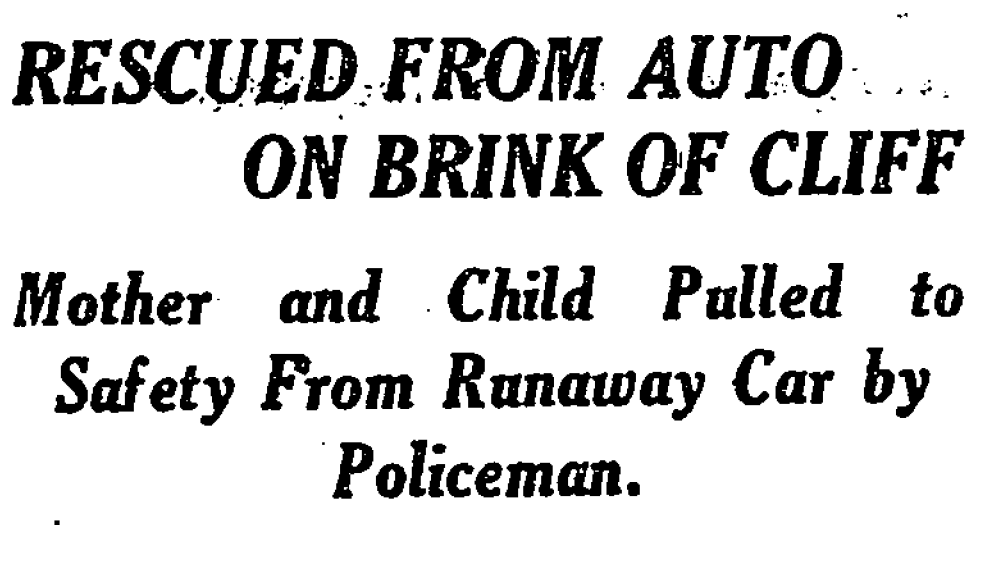- Strange Times
- Posts
- Strange Times 156: Stole a Railroad
Strange Times 156: Stole a Railroad
If you dig this newsletter, support my work on Patreon. Or don’t! That is fine too.
Today brings a stolen railroad and a family snatched back from the brink of tragedy. Double check the emergency brake on…
June 5, 1921
Flooding sweeps across Eastern Colorado, killing hundreds in the city of Pueblo, a state of horror that is “beyond description.” Two passenger trains, carrying around 200 people, are swallowed by water. Burning rafts of lumber drift through the city and fire burns uncontrollably. Martial law is declared; the police are ordered to shoot looters on sight.
Although he does not have a driver’s license, President Harding purchases a dark blue, seven passenger open-topped touring car to use on summer jaunts.
Captain L.D. Hudson boasts that the Army has developed a new gas that can kill anyone whose skin it touches in thirty seconds, and promises that “In the next war machine guns and artillery will be out of date.... It will truly be a war of extermination.”
Cyril V. Briggs, head of the African Blood Brotherhood, denies instigating the Tulsa race massacre, insisting that “the whites were the aggressors” and that the city’s Black population was right to defend itself against the assault of “white hoodlums out for a lynching.”
The Weather: Fair today and Monday; moderate to fresh north and northeast winds.

This brings to mind the Simpsons line about how, “now he's just a little boy stealing little toys. But someday, he'll be a grown man stealing stadiums and—and quarries.” I’m disappointed to hear that Bishoff will serve time for his crime. Surely the sheer outlandishness of his heist deserves leniency.
PARIS, June 4.—Rich in graft and robbery as is the history of the disposal of the American army stores, all records were beaten by Charles Bishoff, who stole a railroad in the region of Nancy. True, “it was only a little one,” a narrow-gauge line connecting the American camp with the main line at Pagny-en-Moselle.
Bishoff was engaged in the familiar game of trying to buy on a shoestring a lot of narrow-gauge rails at another American camp near Onville, but the French authorities proved too cautious, so he proceeded to pull up a few miles of track at Pagny, load it on main line wagons and sell it for 40,000 francs. Then he left the neighborhood hurriedly and took a whirl of the gay life of Montmartre.
Arrested in Paris, he was condemned yesterday to five years’ imprisonment by the Nancy tribunal and to restitution to the State of 40,000 francs.

This is a truly thrilling story that calls to mind two of my favorite early entries in this newsletter, both of which dealt with runaway horses on the streets of New York. Patrolman Glantzlin’s quick thinking—and quicker feet!—have surely earned him a place in the Strange Times pantheon as well.
Patrolman Louis Glantzlin of the Richmond Hill Precinct in a thrilling rescue Friday night saved the lives of Mrs. William Andrews and her three-year-old daughter by dragging them from their runaway automobile a moment before it shot over a thirty-foot embankment. The rescue was effected so close to the edge of the cliff that Andrews, who had stopped his car at the top of a hill to light the tail light, failed to see his wife and child dragged from the machine, and, rushing after it down the embankment, pulled frantically at the wreckage, thinking that his family was underneath, until Glatzlin finally succeeded in attracting his attention.
Andrews, with his wife and little daughter, had started out for a ride through Forest Park, when, as he reached the steep grade between Woodhaven Avenue and Forest Parkway, a passing motorist told him that his taillight was not burning. Applying the emergency brake, he stopped the car, and, getting out, went to the rear. Just as he bent over, the emergency brake released and the machine started forward down the steep incline. It gained headway so quickly that Andrews was unable either to get a firm grip on it or to jump aboard. He called to his wife to apply the brakes, but she, either through ignorance of the mechanism or through panic, failed to do so, merely holding her baby tight in her arms and screaming for help as the car ran down the hill, gathering momentum rapidly.
Glantzlin, who is a mounted patrolman, was off duty, and walking down the street in civilian clothes, when he heard the screams, and turning saw the speeding car with its terror-stricken passengers. As it came abreast of him he took a flying leap and managed to reach the running board. Seeing that there was not time to apply the brake before the car reached the thirty-foot drop, he seized Mrs. Andrews about the waist with one arm, and, with the other grasping the child, jumped to the ground. Half way down the car skidded, crashed into a tree and rolled end over end to the bottom, a mass of wreckage.


